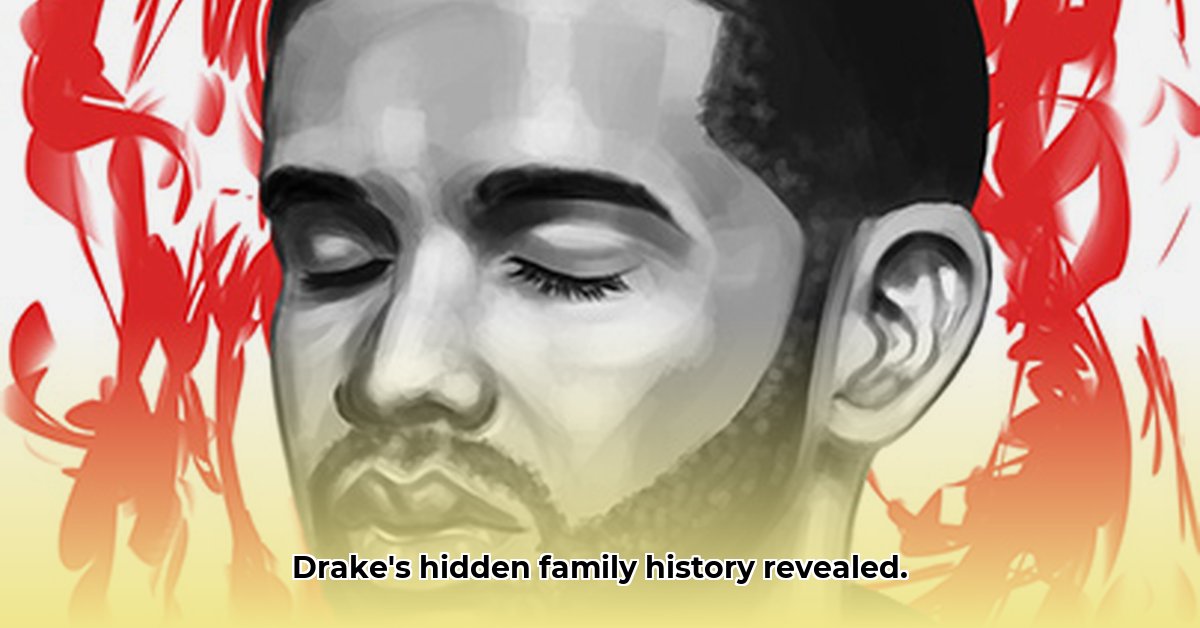Ever wonder about the Drake name? It’s a fairly common name, but its story is far more interesting than you might think. We’ll explore everything from its possible origins to the legacy of notable figures. We’ll also consider how challenging it can be to piece together one single, perfect family history for all the Drakes. For surname migration examples from other cultures, see this helpful resource on Cuban last names.
Drake Family Name: Origin and Meaning
The Drake surname – where did it originate, and what is its story? Is it linked to the Old English word “draca” meaning dragon, or does it stem from the Middle English “drake,” the word for a male duck? Or perhaps it signified someone who lived near a house with a “drake” sign. Unraveling the Drake family history reveals migration patterns, cultural shifts, and compelling narratives of people throughout history.
Tracing the Ancestry: A Journey Through Time
Early records suggest the Drake name has Anglo-Saxon or Old Norse roots, appearing in the British Isles centuries ago. The name is found in English, Dutch, and German records. Generations of Drakes contributed to British history. The Drake name then traveled across oceans, carried by adventurous individuals seeking new lives. What motivated these migrations? Economic opportunity, religious freedom, and the desire for a fresh start all played a role in the spread of the Drake surname.
Notable Figures: Impact and Legacy
When you hear “Drake,” do you immediately think of Sir Francis Drake? His maritime explorations influenced how we view the name today. He assumed the arms, though he could not establish a relationship, leading to a dispute settled by Queen Elizabeth, who eventually granted him a unique coat. His accomplishments gave the name a distinct position in history, but they shouldn’t overshadow the stories of other Drake families. The Drake family has also produced politicians, physicians, and musicians who have shaped society in various ways.
Beginning the Search: Researching Your Drake Ancestry
Researching family history, especially a name as common as Drake, requires persistence. Varying spellings, like Drakes and Draike, make the search challenging, but rewarding. Early record-keeping inconsistencies add to the difficulty.
Genealogical Resources and Tools for Tracing Your Roots
What resources are available to trace your roots? Consider these resources:
- Online Genealogy Databases: FamilySearch and Ancestry.com provide access to birth certificates, marriage records, census records, and more.
- Local Family History Societies: Joining these societies opens doors to insights and assistance from fellow researchers.
- DNA Testing: DNA testing can confirm familial relationships and provide another layer of evidence.
Genealogical research is an ongoing process. New discoveries and technologies constantly emerge, so keep exploring to uncover the story of the Drake family name.
How to Trace Drake Lineage
Tracing the Drake lineage can be difficult due to limited documentation and the commonality of the name. While some Drake families have well-documented histories. Many claimed descendants lack the concrete evidence to confirm their connection. Given the name’s popularity, source verification is vital.
Navigating the Genealogical Path
How can you successfully navigate the genealogical path to trace your Drake family history? Here’s a strategic approach:
- Start with the Known: Begin with verifiable facts, such as your direct ancestors and their immediate families.
- Gather Primary Sources: Seek original documents like birth certificates, marriage records, wills, land deeds, and census records.
- Evaluate Secondary Sources: Cross-reference information across multiple sources and approach claims with skepticism.
- Leverage Technology: Use online genealogy databases (Ancestry, MyHeritage, FamilySearch) as a starting point and confirm through original documents.
- Collaborate and Consult: Connect with other researchers and consider consulting a professional genealogist.
Risks of Unverified Claims
Many online sources offer extensive Drake family trees. However, always use a critical eye and determine if primary source documentation supports these claims. Be wary of assertions that rely on hearsay or tradition alone.
Drake Surname Migration Patterns
Drake Surname Migration Patterns experienced significant shifts in distribution. Research reveals the interplay of social, economic, and political factors driving these movements. Understanding these patterns sheds light on the experiences of Drake families throughout history. Where did Drake families settle, and what shaped their journeys?
Tracing the Drake Family’s Geographical Movement
The Drake name originates from the Old English word “draca,” meaning dragon. Parish records, containing birth, marriage, and death information, provide clues to Drake family settlements. Analyzing these regional records helps us build a picture of Drake family settlements. Did economic opportunities influence their movement?
Mapping the Drake Family’s Historical Journey
Significant historical events impacted population movements. Did Drake families flee conflict zones? Did changes in land ownership or religious persecution force internal migration? English colonization efforts also played a role. Did members of the Drake family participate in these voyages?
Limitations to Acknowledge: Historical Data Gaps
It’s crucial to acknowledge the limits of current knowledge. Many records were lost or destroyed over time, and incomplete data may influence our conclusions. Future studies of Drake Surname Migration Patterns may help us draw a more comprehensive map, requiring compiling data from numerous sources.
Geographic Distribution of Drake Surname Variations Across Europe
The Geographic Distribution of Drake Surname Variations Across Europe uncovers the surname’s evolution. Early records indicate the Drake name was concentrated in England. However, identifying the distribution requires careful consideration of spelling variations like Drake, Drakes, and Draike. Existing online resources provide a glimpse, but further research is needed.
Uncovering the Patterns: Drake’s European Footprint
To understand how the Drake name spread, we need to analyze major historical events such as the Norman Conquest. Did these events concentrate the Drake surname in specific regions, or did they contribute to scattering it across Europe?
Data Limitations: Refining the Historical Narrative
Current data has limitations. Online resources rely on readily available data, such as telephone directories or self-reported information, and this may not capture the full picture. The impact of migration to North America also influences the current distribution, obscuring historical concentrations in Europe.










